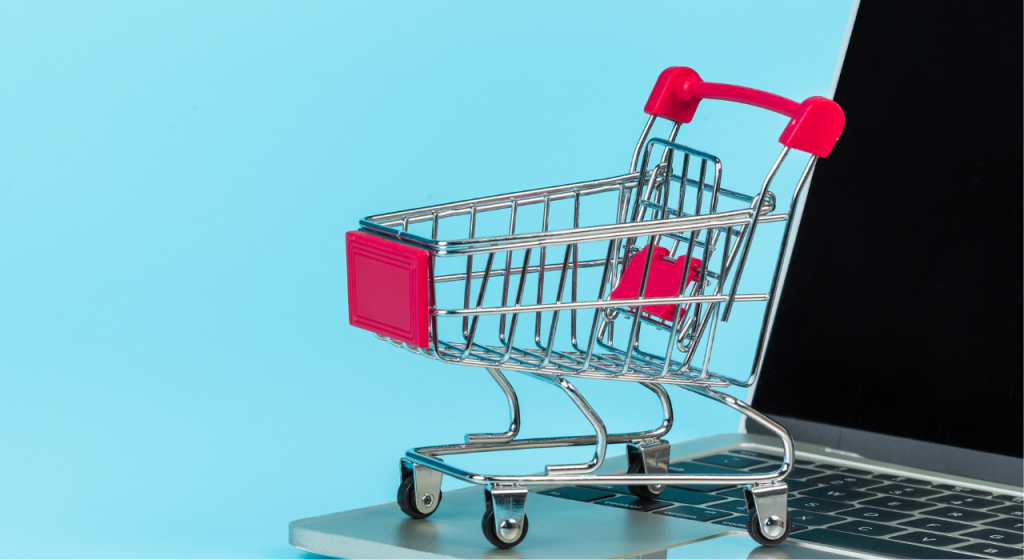First things first—Happy New Year! We know our greeting is a little late, but better late than never, right?
Anyway, we’re back to business still bearing our promise: to help you become better sellers! And what better way to kickstart this master plan than to give you insightful information you can use to face 2025 with confidence and certainty?
- Is Amazon still worth it? 💭
- Top ecommerce trends this year 💡
- Be better sellers in 2025 ✨

BIG IDEA
Here’s a not-so-secret fact: over 60% of Amazon sales come from third-party (3P) sellers. The retail giant thrives by taking a cut from these sales, but its recent policy changes are testing the limits of sellers' tolerance.
According to The Prospect, Amazon has steadily increased its share of 3P seller revenue, rising from 19% in 2014 to a staggering 45% in 2023. Fees for fulfillment and advertising have ballooned, with Amazon raking in $140 billion just last year alone! 💰
Looking ahead to 2025, Amazon has good and bad news for its sellers.
Good news: Amazon promises to hold seller fees steady this year.
Bad news: Starting March 10, Amazon will reimburse lost or damaged inventory at manufacturing cost rather than the retail price. This policy change could be a game-changer—but NOT in a good way. 👎
- This can leave sellers to absorb costs for customs, shipping, and prep fees.
- Sellers must either accept Amazon’s potentially flawed cost evaluations or hand over proprietary manufacturing data—an option many fear could expose them to knockoffs or unfair competition.
Modern Retail reported that sellers are calling foul, with some predicting reimbursement cuts as high as 70%. One viral YouTube video summed it up: "Amazon’s new policy essentially shifts all the blame and financial burden for their warehouse mistakes onto sellers."
So, is Amazon FBA still worth it this year?
⚖️ Well, it depends on your business needs. To see if you should continue your FBA venture, you must navigate the following factors:
- Cost. FBA fees, including storage and fulfillment fees, can be significant. 📈
- Ask yourself: Can your product volume, turnover, and margins handle these fees or will they make it harder to stay profitable?
- Competition. Amazon’s marketplace is more crowded than ever.
- Ask yourself: Are you willing to invest in branding or unique selling points to stand out with Amazon FBA or will you blend into the sea of competitors?
- Simplified fulfillment. FBA’s convenience remains a major draw.
- Ask yourself: Does the convenience of Amazon handling storage, packing, and shipping outweigh the higher fees?
- Customer reach. The Amazon Prime badge gives you access to a vast customer base. 🎖️
- Ask yourself: With Amazon’s massive customer base, will the Prime badge boost your sales enough to justify the additional fees?
- Product type and demand. Lightweight, high-demand products often see the best returns with FBA.
- Ask yourself: Would selling your product through FBA maximize cost-efficiency or are you better off exploring other fulfillment options?
🎱 The ball’s in your court
Sure, Amazon FBA still offers undeniable perks. But in 2025, you must carefully weigh the benefits against the increasing costs, competitive landscape, and evolving policies.
At the end of the day, you can only decide if it’s worth continuing or if it’s time to consider other options.

TRENDING
Top trends that will shape online shopping in 2025

Ecommerce is moving fast, and 2025 is looking like a year full of big changes and chances to earn big. With new tech and trends driving big shifts in how customers will shop online, you’ll need to adapt to stay ahead of the curve.
👀 Chain Store Age listed 7 digital marketing trends you need to keep an eye on:
- Shopping on social media. These platforms are turning into a powerful way to shop and influence what people buy.
- Instagram and TikTok make up about 7% of e-commerce sales, which is expected to rise to more than 10% this year. 📱
- Voice search takes over. This year, half of all online searches will be done using voice. This means you need to make sure your websites work well with voice searches.
- Shopping gets more personal. Whether it’s product suggestions or personalized ads, more stores are expected to offer sharply tailored shopping experiences. 🪒
- AI will take center stage by:
- Helping craft personalized recommendations and engage better with shoppers;
- Boosting and optimizing marketing campaigns; and
- Handling routine tasks like customer service and inventory management.
- More people want ethical brands. 70% of shoppers will go for brands that align with their values. If your business cares about the environment or ethical practices, it will help build trust and customer loyalty.
- Virtual shopping experiences. AR will be a $50 billion industry, and many businesses will use it to make shopping more fun and personal.
- Luxury and discount shopping sites. Ecommerce will split into 2 main types:
- Luxury-focused that’ll offer exclusive, high-end products
- Affordability-focused that’ll provide shoppers with good deals at discounted rates
📄 The next chapter is here
The future of ecommerce is fast, personalized, and interactive. Those who embrace these changes early will have the edge. So, start planning now—the future of ecommerce is ready for the taking!e

BITES OF THE WEEK
- 2025 Amazon Fees: Here are the updated Amazon fees for 2025 and how (they’ll affect your business).
- Beginner FAQs: Want to learn about the basics of being an Amazon seller?
- Seller Alert: Amazon has new product title requirements effective January 21, 2025!

SELLER REFRESHER
5 key tips to be better sellers this year

The only thing faster than trends is your competition trying to catch up. But don't sweat it—success is still within reach if you know where to focus your efforts.
Amazon shared 5 tips that will help you make smart moves and stand out in a crowded market.
- Choose products to sell. Picking the right products is the first step to success. Start by researching top-selling items to understand what’s popular. 🛍️
- Tip: Consider market price, shipping costs, and your specific target audience of the products.
- Source your products. You have the option to make, manufacture, or dropship your products.
- Tip: Find suppliers that offer quality, reliable service, and fair prices.
- Set up your online store. Choose whether to sell via your site, social media, or platforms like Amazon. 🏬
- Tip: Use high-quality photos and clear, engaging product descriptions. Don’t forget to optimize your copy for SEO to improve visibility and attract more buyers.
- Manage inventory and shipping. Consider using services like FBA or FBM to manage inventory and shipping.
- Tip: Be mindful of shipping costs, especially for larger, heavier items.
- Focus on customer service. Good customer service helps build loyalty and encourages referrals. Monitor reviews, respond promptly to customer inquiries, and learn from feedback.
- Tip: Show appreciation to repeat customers through discounts or special offers.
🛒 The art of online selling
Selling online successfully in 2025 requires a mix of strategic decisions. By continuously optimizing your approach, you can start the year right and become better sellers than you’ve ever been.








